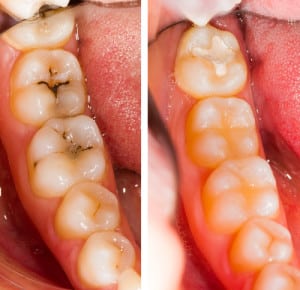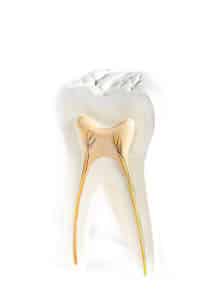 Thanksgiving is a great opportunity to enjoy your favorite foods with your family and friends. Unfortunately, all the feasting can sometimes take a toll on your teeth. Too many sweets, in particular, can wreak havoc on an otherwise healthy smile. Fortunately if you’d like to start the new year with great teeth and gums, there are a few simple steps that can help make it possible. From limiting how much pie you put on your plate to how frequently you floss, caring for your smile is simple with a few preventive dental tips. (more…)
Thanksgiving is a great opportunity to enjoy your favorite foods with your family and friends. Unfortunately, all the feasting can sometimes take a toll on your teeth. Too many sweets, in particular, can wreak havoc on an otherwise healthy smile. Fortunately if you’d like to start the new year with great teeth and gums, there are a few simple steps that can help make it possible. From limiting how much pie you put on your plate to how frequently you floss, caring for your smile is simple with a few preventive dental tips. (more…)
Can Fillings Harm Your Mouth?
 A tooth filling helps to protect cavities that have formed in your teeth due to bacteria and decay. Fillings help to prevent the bacteria from causing further decay around your mouth. Dentists are able to use several different types of material in order to achieve this – gold, porcelain, composite resin, and amalgam are all materials that can be used. Porcelain or composite resin are both materials that closely resemble the natural color of the tooth. Determining what material is right for you will be a conversation that you have with your dentist. Can fillings harm your mouth? (more…)
A tooth filling helps to protect cavities that have formed in your teeth due to bacteria and decay. Fillings help to prevent the bacteria from causing further decay around your mouth. Dentists are able to use several different types of material in order to achieve this – gold, porcelain, composite resin, and amalgam are all materials that can be used. Porcelain or composite resin are both materials that closely resemble the natural color of the tooth. Determining what material is right for you will be a conversation that you have with your dentist. Can fillings harm your mouth? (more…)
Sparkle and Shine with Cosmetic Dentistry
 Want to do more than deck the halls this holiday season? Want to make it so that your smile shines as bright as the prettiest lights or the largest star? If so, cosmetic dentistry can certainly help. By helping to hide imperfections and improve the overall appearance of your smile, a cosmetic dentist can help enhance your smile’s existing natural beauty, leaving you feeling more confident, even dazzling, in the process. If a prettier smile is all that’s on your Christmas wish list, forget writing to Santa, and instead give your cosmetic dentist a call. (more…)
Want to do more than deck the halls this holiday season? Want to make it so that your smile shines as bright as the prettiest lights or the largest star? If so, cosmetic dentistry can certainly help. By helping to hide imperfections and improve the overall appearance of your smile, a cosmetic dentist can help enhance your smile’s existing natural beauty, leaving you feeling more confident, even dazzling, in the process. If a prettier smile is all that’s on your Christmas wish list, forget writing to Santa, and instead give your cosmetic dentist a call. (more…)
What Is Preventive Dentistry?
 In short, preventive dentistry is caring for your teeth in order to keep them healthy. This is why your dentist recommends you get biannual cleanings and checkups to make sure your gums and teeth are at their healthiest throughout the year. Preventive dentistry is avoiding decay, tooth loss, gum disease, enamel wear, cavities – the list could go on forever! By practicing good oral hygiene and visiting your dentist, you are preventing your overall health from being compromised by bacteria. What is preventive dentistry? (more…)
In short, preventive dentistry is caring for your teeth in order to keep them healthy. This is why your dentist recommends you get biannual cleanings and checkups to make sure your gums and teeth are at their healthiest throughout the year. Preventive dentistry is avoiding decay, tooth loss, gum disease, enamel wear, cavities – the list could go on forever! By practicing good oral hygiene and visiting your dentist, you are preventing your overall health from being compromised by bacteria. What is preventive dentistry? (more…)
Do You Suffer From Tooth Sensitivity?
When the  enamel on your teeth is worn down, your teeth can be sensitive to extreme temperatures and to eating or drinking. This happens because the enamel protects these tiny tubes that go through the dentin (the layer beneath the enamel). The exposure of these tubes to cold air, extreme temperatures, or even your touch, causes nerve irritation which is where your pain is coming from. If you have receding gums, you may be experiencing sensitivity from the tops of your teeth because the gums are no longer there to protect them. Do you suffer from tooth sensitivity? (more…)
enamel on your teeth is worn down, your teeth can be sensitive to extreme temperatures and to eating or drinking. This happens because the enamel protects these tiny tubes that go through the dentin (the layer beneath the enamel). The exposure of these tubes to cold air, extreme temperatures, or even your touch, causes nerve irritation which is where your pain is coming from. If you have receding gums, you may be experiencing sensitivity from the tops of your teeth because the gums are no longer there to protect them. Do you suffer from tooth sensitivity? (more…)
How Can You Treat Sleep Apnea?
 Sleep apnea is a sleep disorder in which you often awake because your airway is blocked. Sometimes treating sleep apnea is a simple answer – a lifestyle change. However, other times it can involve sleeping with certain devices in order to maintain your oxygen. Sleep apnea can be difficult to diagnose because sometimes symptoms can be as minimal as loud snoring. If you (or your partner) think you could have sleep apnea, talk to your dentist about getting a diagnosis. How can you treat sleep apnea? (more…)
Sleep apnea is a sleep disorder in which you often awake because your airway is blocked. Sometimes treating sleep apnea is a simple answer – a lifestyle change. However, other times it can involve sleeping with certain devices in order to maintain your oxygen. Sleep apnea can be difficult to diagnose because sometimes symptoms can be as minimal as loud snoring. If you (or your partner) think you could have sleep apnea, talk to your dentist about getting a diagnosis. How can you treat sleep apnea? (more…)
What Is Bruxism?
 Bruxism is a condition where you grind or clench your teeth whether you’re awake or asleep. However, if you do have sleep Bruxism, you’re more likely to have sleep apnea – a sleeping disorder where your sleep is interrupted from pauses in your breathing. If you are experiencing frequent pain in your jaw, it could be possible that you are suffering from Bruxism. Bruxism is not limited to age – it can occur in children and adults, but it may present itself differently in each patient. What is bruxism? (more…)
Bruxism is a condition where you grind or clench your teeth whether you’re awake or asleep. However, if you do have sleep Bruxism, you’re more likely to have sleep apnea – a sleeping disorder where your sleep is interrupted from pauses in your breathing. If you are experiencing frequent pain in your jaw, it could be possible that you are suffering from Bruxism. Bruxism is not limited to age – it can occur in children and adults, but it may present itself differently in each patient. What is bruxism? (more…)
How Root Canal Therapy Can Save Your Tooth
 Root canal therapy is a treatment that targets the soft nerve tissue inside of each tooth. That soft tissue (also called “pulp tissue”) can be affected by a number of issues, like advanced cavities, a chipped or cracked tooth, or even damage to a tooth that leaves no visible issues. Root canal therapy can be an involved procedure, and may require multiple visits. But in cases where damage to your tooth has extended down to the pulp, root canal therapy can be necessary to save you from losing a tooth. (more…)
Root canal therapy is a treatment that targets the soft nerve tissue inside of each tooth. That soft tissue (also called “pulp tissue”) can be affected by a number of issues, like advanced cavities, a chipped or cracked tooth, or even damage to a tooth that leaves no visible issues. Root canal therapy can be an involved procedure, and may require multiple visits. But in cases where damage to your tooth has extended down to the pulp, root canal therapy can be necessary to save you from losing a tooth. (more…)
Plaque, Tartar, Bacteria, and Dental Cleanings
 Your teeth begin to accumulate a sticky film of plaque immediately after you brush and floss them. The more time passes, the thicker the film becomes until you can see and feel the plaque on your teeth. If you don’t clean them again soon, then plaque can quickly calcify (harden) into tartar, and it will remain there until your hygienist removes it during your next dental cleaning. The bacteria that are found in plaque and tartar are the building blocks of issues like cavities and gingivitis, therefore keeping them under control with regular dental cleanings is vital to keeping your smile healthy. (more…)
Your teeth begin to accumulate a sticky film of plaque immediately after you brush and floss them. The more time passes, the thicker the film becomes until you can see and feel the plaque on your teeth. If you don’t clean them again soon, then plaque can quickly calcify (harden) into tartar, and it will remain there until your hygienist removes it during your next dental cleaning. The bacteria that are found in plaque and tartar are the building blocks of issues like cavities and gingivitis, therefore keeping them under control with regular dental cleanings is vital to keeping your smile healthy. (more…)
A Brief Introduction to Dental Sedation
 Dental sedation isn’t always a routine part of dental treatment, but for patients who experience dental fear and anxiety, it can help them receive the general dental care that they need. For others, dental sedation can help them stay relaxed for longer periods of time in the dentist’s chair, making extensive or complex treatment more manageable. Depending on your level of fear (if any) and the extent of your procedure, we offer a choice of dental sedation methods with varying degrees of potency. (more…)
Dental sedation isn’t always a routine part of dental treatment, but for patients who experience dental fear and anxiety, it can help them receive the general dental care that they need. For others, dental sedation can help them stay relaxed for longer periods of time in the dentist’s chair, making extensive or complex treatment more manageable. Depending on your level of fear (if any) and the extent of your procedure, we offer a choice of dental sedation methods with varying degrees of potency. (more…)







